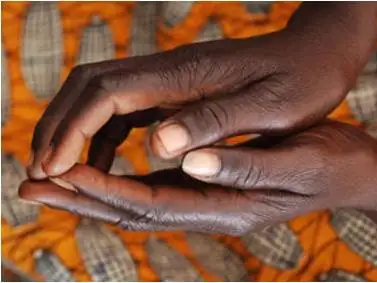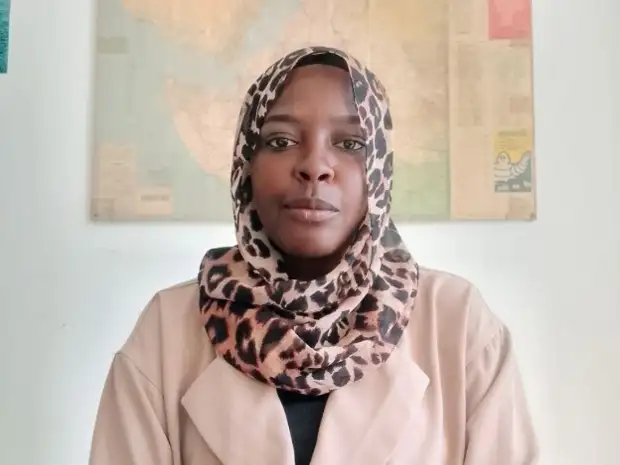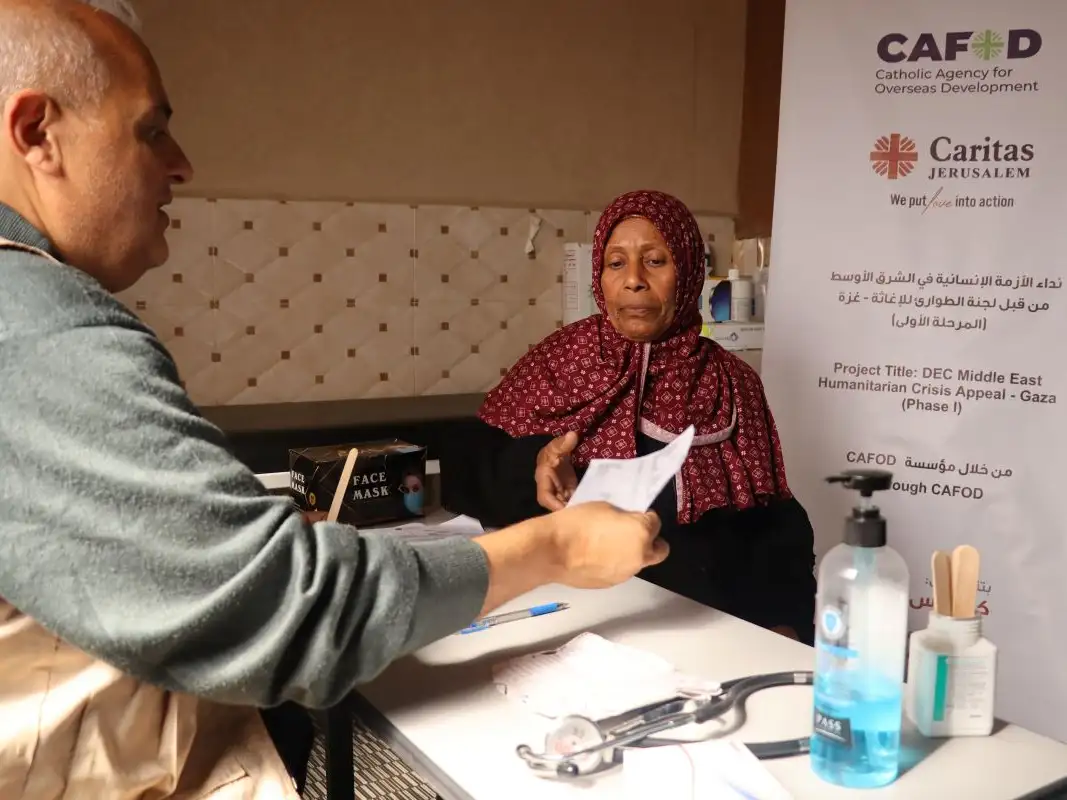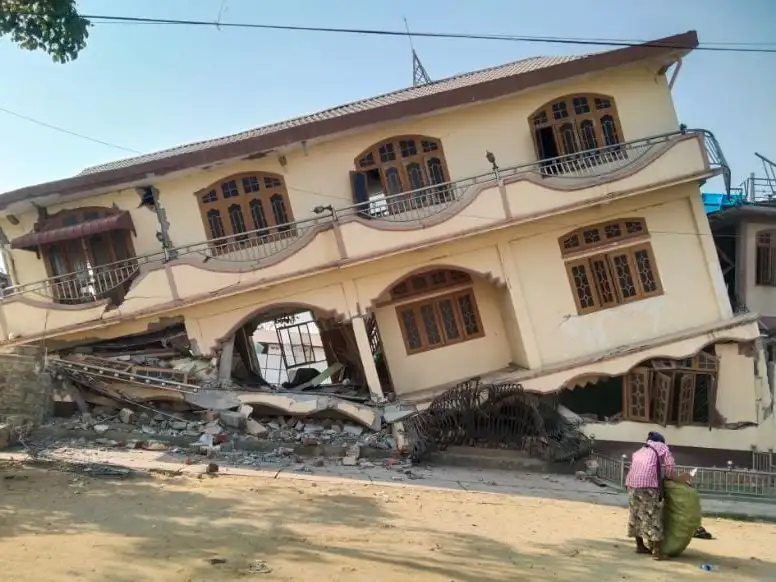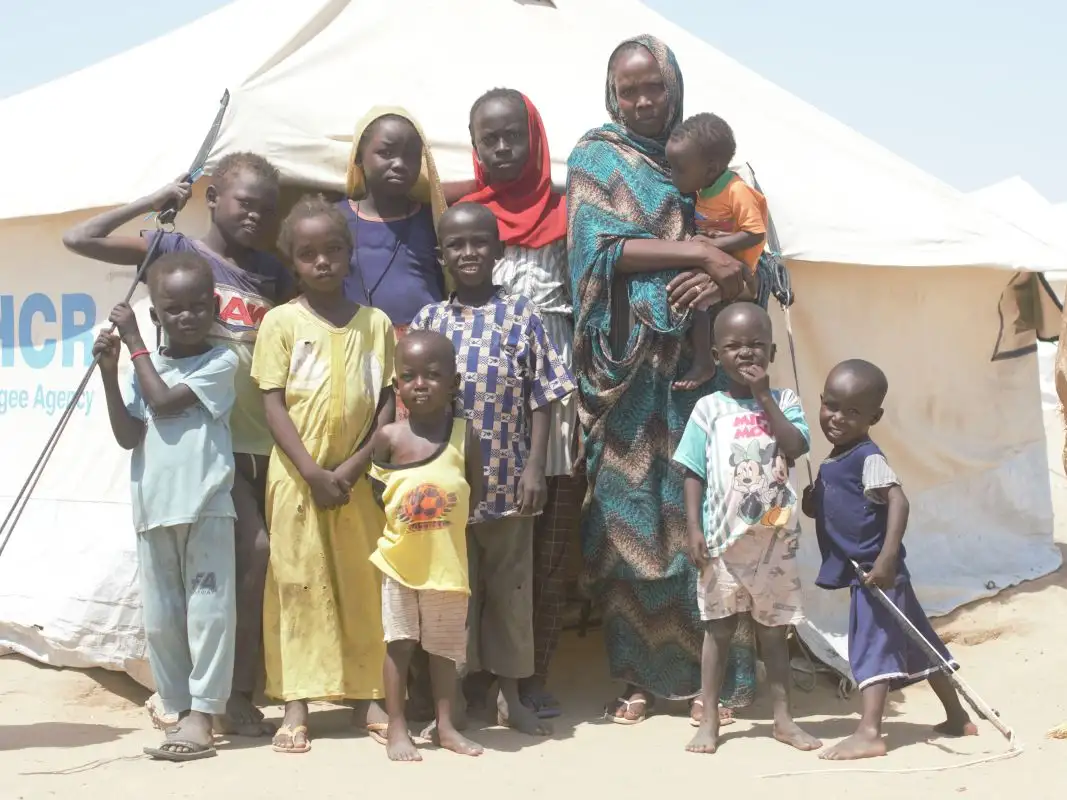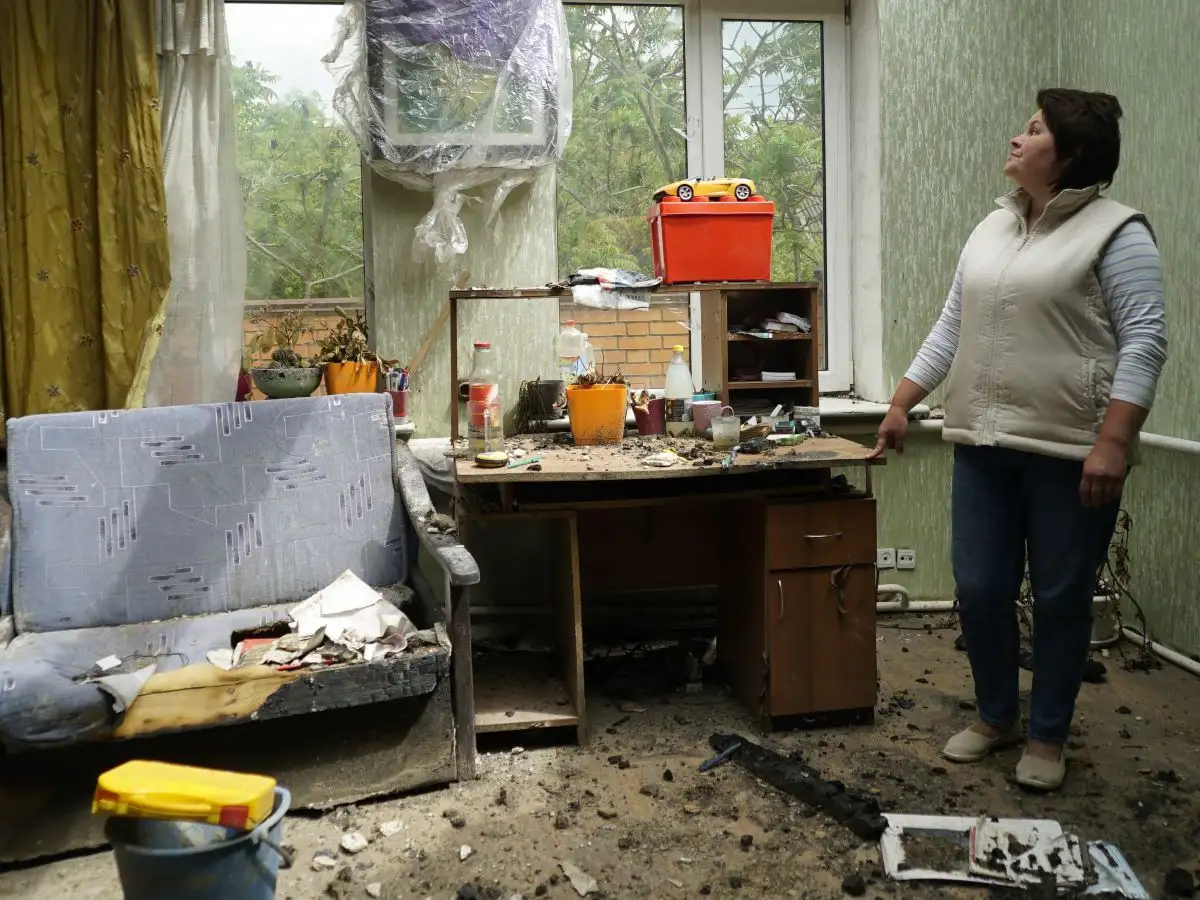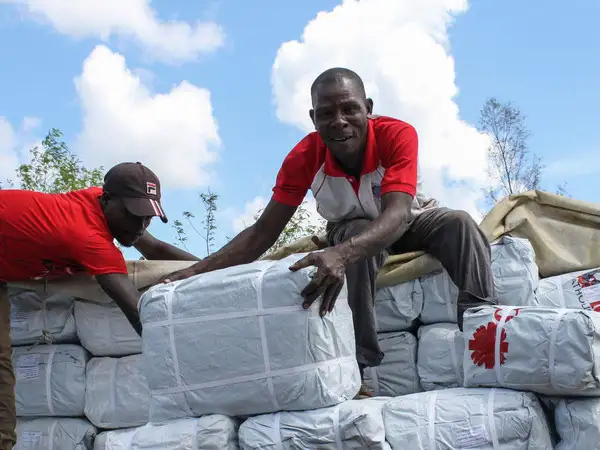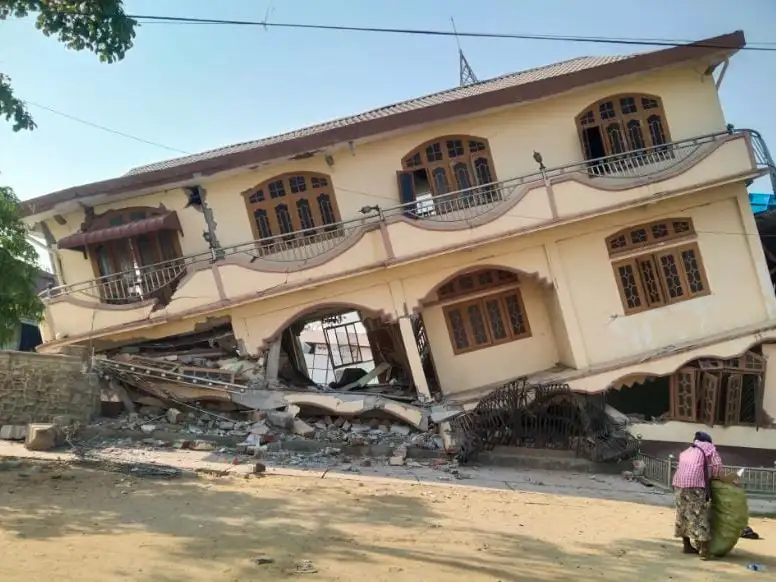

On 28 March 2025, a serious earthquake hit Myanmar in an area already affected by conflict. Through the Catholic Church, our local partners provided emergency food, water and shelter to vulnerable families.
Setting the scene
According to the United Nations’ 2025 Global Humanitarian Overview, 305.1 million people around the world need urgent humanitarian assistance like food, water and shelter. That’s over four times the population of the United Kingdom.
The climate crisis and an increase in conflicts worldwide mean more people are facing poverty, with many being forced from their homes. Women are one of the most affected groups experiencing an increase in violence and are finding it harder to access life-saving services. That’s why we work with communities over the long-term - we stay before, during and after an emergency.
Our vision on preparing, responding and recovering from emergencies
We have been working in emergencies with local experts for over 60 years. We are inspired by the Gospel values of dignity, compassion, solidarity and hope. That’s why we are committed to working with communities, so they receive the best possible support to the challenges they face.
We listen to the families we support and change our approach depending on their feedback. We shaped the development of the Core Humanitarian Standard (CHS), a global quality standard initiative, and were one of the first organisations to be certified against these humanitarian standards.
Local partners are often the first to respond when an emergency hits. However, historically their efforts are often under-recognised. We are proud to work closely with these local teams within countries helping them provide emergency support based on what the local communities need and can do for themselves.
How are we working on humanitarian preparedness, response and recovery work?
Our work on humanitarian preparedness, response and recovery focuses on three key areas:
1. Supporting our local partners to deliver quality humanitarian responses
Our local partners support families before, during and after a crisis. This means we help families prepare for an emergency, survive in a crisis and stand with them as they rebuild their lives.
Before an emergency happens, we help our local partners get ready to respond quickly and effectively. This might take the form of emergency preparedness planning – a process of identifying potential crises, thinking through how they might respond and what they can do to make a future response more effective.
When an emergency happens, we work with local partners to provide fast, fair and environmentally friendly help and recovery. We work alongside our partners on humanitarian activities which are safe and accessible. This includes support such as cash assistance – providing families in a crisis with money to buy essentials like food and warm clothes.
2. Reducing risk and increasing resilience of people and planet
Emergencies can disrupt communities and undo years of progress. Taking a long-term approach that focuses on reducing risk and building resilience before a crisis strikes can greatly lessen its impact.
Through working with local experts over the long-term, we aim to address the root causes of social, political, economic, environmental, and climate challenges. We help families and communities prepare for crises like flash floods, adapt and recover so they can flourish even in changing circumstances. By doing this, we aim to minimise the impact of emergencies and help create a world where communities can thrive, not just survive.
We also recognise the vital role that culture plays in resilience and recovery. Activities that draw on local knowledge and cultural traditions can strengthen communities, foster solidarity, and support mental and emotional wellbeing.
3. Strengthening locally-led responses
We work with local partners to strengthen their work in helping vulnerable communities. We do this by helping them build connections with other organisations.
CAFOD's Global Humanitarian Advocacy Programme focuses on putting local leadership – people living and working within the countries we support – at the heart of our humanitarian response. We support our local partners to have a greater role in making the decisions when emergencies hit as they understand the complexities and uniqueness of the communities they serve, making our response even more effective.
This means working with other organisations that believe in locally-led emergency response. We do this through coalitions such as the Charter4Change, the Start Network, the Disasters Emergency Committee and the Core Humanitarian Standard Alliance. We also commit funding to support our local partners, helping them strengthen their own work and invest in research, learning and new ideas.
Our impact in 2024
In 2024, our local partners reached 977,757 people, supporting them to prepare for, respond to and recover following emergencies across the Middle East, Africa, Asia and Latin America.
1,655 people received emergency cash and relocation support following the most severe droughts in the history of the Brazilian Amazon, through our work with our Church partner Caritas Brasileira.
We reached 47,968 people affected by flooding with emergency cash support so families could choose how to meet their immediate needs in the Democratic Republic of Congo.
We supported the restoration of 57 buildings and 119 housing units following urban airstrikes in Syria to provide safety, security and protection against adverse weather.
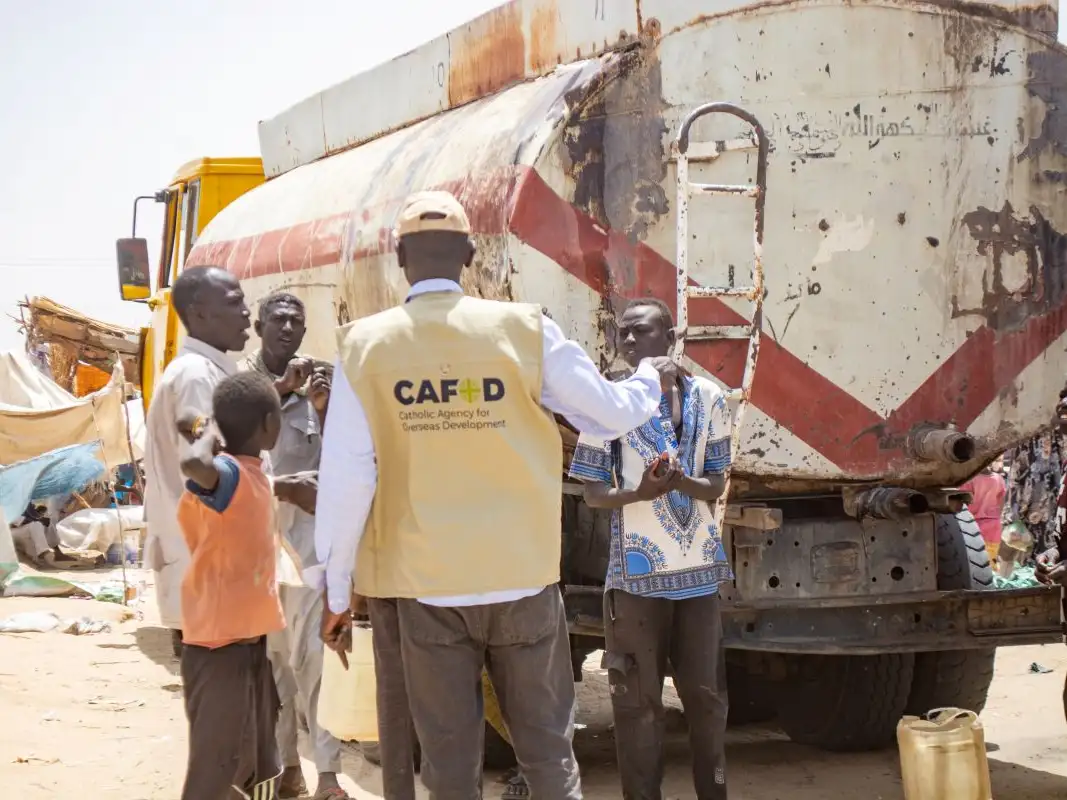

Our local partners are helping to provide emergency water and toilets to vulnerable communities in Sudan. Credit: George Wambugu
Case study: Responding to the Sudan crisis
Since April 2023, the escalating conflict in Sudan has forced millions of people to flee their homes. In crowded refugee camps in neighbouring countries, families are vulnerable to the spread of deadly diseases.
In 2024-25, we ran an emergency appeal responding to the growing number of internally displaced people (people who’ve fled their homes but remain in the country) in Sudan due to the conflict that broke out in April 2023. Funding through the Caritas Network has enabled our local partner Hope Sudan to support around 50,000 people with emergency aid including access to safe drinking water to prevent the spread of cholera, sanitary services, and cash assistance to purchase goods and food. We’re also supporting children whose families have been displaced by fighting.


